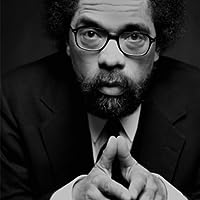Black History Month Quotes
Quotes tagged as "black-history-month"
Showing 1-30 of 42

“Most people write me off when they see me.
They do not know my story.
They say I am just an African.
They judge me before they get to know me.
What they do not know is
The pride I have in the blood that runs through my veins;
The pride I have in my rich culture and the history of my people;
The pride I have in my strong family ties and the deep connection to my community;
The pride I have in the African music, African art, and African dance;
The pride I have in my name and the meaning behind it.
Just as my name has meaning, I too will live my life with meaning.
So you think I am nothing?
Don’t worry about what I am now,
For what I will be, I am gradually becoming.
I will raise my head high wherever I go
Because of my African pride,
And nobody will take that away from me.”
― Wealth for all Africans: How Every African Can Live the Life of Their Dreams
They do not know my story.
They say I am just an African.
They judge me before they get to know me.
What they do not know is
The pride I have in the blood that runs through my veins;
The pride I have in my rich culture and the history of my people;
The pride I have in my strong family ties and the deep connection to my community;
The pride I have in the African music, African art, and African dance;
The pride I have in my name and the meaning behind it.
Just as my name has meaning, I too will live my life with meaning.
So you think I am nothing?
Don’t worry about what I am now,
For what I will be, I am gradually becoming.
I will raise my head high wherever I go
Because of my African pride,
And nobody will take that away from me.”
― Wealth for all Africans: How Every African Can Live the Life of Their Dreams

“Eastward and westward storms are breaking,--great, ugly whirlwinds of hatred and blood and cruelty. I will not believe them inevitable.”
― The Wisdom of W.E.B. Du Bois
― The Wisdom of W.E.B. Du Bois

“Dr. Martin Luther King Jr.’s dream was a manifestation of hope that humanity might one day get out of its own way by finding the courage to realize that love and nonviolence are not indicators of weakness but gifts of significant strength.”
― Illuminated Corners: Collected Essays and Articles Volume I.
― Illuminated Corners: Collected Essays and Articles Volume I.

“The American identity has never been a singular one and the voices of poets invariably sing, in addition to their own, the voices of those around them.”
― The American Poet Who Went Home Again
― The American Poet Who Went Home Again

“The best of humanity's recorded history is a creative balance between horrors endured and victories achieved, and so it was during the Harlem Renaissance.”
― Journey through the Power of the Rainbow: Quotations from a Life Made Out of Poetry
― Journey through the Power of the Rainbow: Quotations from a Life Made Out of Poetry

“Millions of tears have fallen for black sons, brothers, lovers, and friends whose assailants took or maimed their lives and then simply went on their way.”
― Illuminated Corners: Collected Essays and Articles Volume I.
― Illuminated Corners: Collected Essays and Articles Volume I.

“In its essence, Martin Luther King Jr.’s ‘I Have a Dream’ speech is one citizen’s soul-searing plea with his countrymen––Whites and Blacks––to recognize that racial disparities fueled by unwarranted bigotry were crippling America’s ability to shine as a true beacon of democracy in a world filled with people groping their way through suffocating shadows of political turmoil, economic oppression, military mayhem, starvation, and disease.”
― Illuminated Corners: Collected Essays and Articles Volume I.
― Illuminated Corners: Collected Essays and Articles Volume I.

“It’s not just a matter of having lost the land and the wealth that came with it. It’s a matter of the fact that we lost a way of life that we should have been able to pass on to our children and to their children, but which we can’t because of what was taken from us. (Harris Neck, Georgia native Wilson Moran as quoted by Aberjhani in The American Poet Who Went Home Again)”
― The American Poet Who Went Home Again
― The American Poet Who Went Home Again

“The argument is that Black History Month dwells too much on the downside of white America's relationship to its brothers of African heritage, slavery and torture and the like, and ignores the work of all the good white folk through the years who were nice to black people (did you know it was a white teacher who first suggested George Washington Carver study horticulture?).”
― Griftopia: Bubble Machines, Vampire Squids, and the Long Con That Is Breaking America
― Griftopia: Bubble Machines, Vampire Squids, and the Long Con That Is Breaking America

“I look around. You'd have to be out of your fucking mind to write, as Marcus did, that Black History Month is a ploy to lever more entitlement money out of Congress, but the ho-hum nonresponse of the white crowd reading this bit of transparent insanity is, to me, even weirder.”
― Griftopia: Bubble Machines, Vampire Squids, and the Long Con That Is Breaking America
― Griftopia: Bubble Machines, Vampire Squids, and the Long Con That Is Breaking America

“Trayvon Martin, at the most, seems only to have been guilty of being himself.”
― Illuminated Corners: Collected Essays and Articles Volume I.
― Illuminated Corners: Collected Essays and Articles Volume I.

“Sociologically, politically, psychologically, spiritually, it was never enough for James Baldwin to categorize himself as one thing or the other: not just black, not just sexual, not just American, nor even just as a world-class literary artist. He embraced the whole of life the way the sun’s gravitational passion embraces everything from the smallest wandering comet to the largest looming planet.”
― Splendid Literarium: A Treasury of Stories, Aphorisms, Poems, and Essays
― Splendid Literarium: A Treasury of Stories, Aphorisms, Poems, and Essays

“There are hundreds of political prisoners right now in America’s jails who were so taken by Malcolm [X’s} spirit that they became warriors and the powers that be understood them as warriors. They knew that a lot of these other middle-class [black] leaders were not warriors; they were professionals; they were careerists. But these warriors had callings, and they have paid an incalculable and immeasurable price in those cells.”
― Black Prophetic Fire
― Black Prophetic Fire

“But I am really saying something very simple. The will of the people, or the state, is revealed by the state's institutions. There was not, then, nor is there, now, a single American institution, which is not a racist institution. And racist institutions - the unions, for one example, the Church, for another, and the Army - or the military - for yet another, are meant to keep the nigger in his place. Yes: we have lived through tokens and concessions but white power remains white. And what it appears to surrender with one hand it obsessively clutches in the other.”
― Dark Days
― Dark Days

“Nia learned that our self-identity and connection to our roots is so powerful it can impact not only the course of our lives but also that of generations to come.”
― Fridays With Ms. Mélange
― Fridays With Ms. Mélange

“Many years later, people would forget about the quiet successes of everyday people like Ida Mae. In the debates to come over welfare and pathology, American would overlook people like her in its fixation with the underclass, just as a teacher can get distracted by the two or three problem children at the expense of the quiet, obedient ones. Few experts trained their sights on the unseen masses of migrants like her, who worked from the moment they arrived, didn’t end up on welfare, stayed married because that’s what God-fearing people of their generation did whether they were happy or not, and managed not to get strung out on drugs or whiskey or a cast of nameless, no-count men.”
― The Warmth of Other Suns: The Epic Story of America's Great Migration
― The Warmth of Other Suns: The Epic Story of America's Great Migration

“At Harvard, so the story goes, one of Carter's professors said that Black people had no history.
Carter remembered his father's pride, his mother's courage, and Oliver's determination to learn. He remembered reading the newspaper.
Carter spoke up. "No people lacked a history," he said. The professor challenged Carter to prove him wrong.
For the rest of his life, Carter did just that.”
― Carter Reads the Newspaper
Carter remembered his father's pride, his mother's courage, and Oliver's determination to learn. He remembered reading the newspaper.
Carter spoke up. "No people lacked a history," he said. The professor challenged Carter to prove him wrong.
For the rest of his life, Carter did just that.”
― Carter Reads the Newspaper

“White supremacy is not a human right, it's a human rights violation, and by allowing a school to keep black history out of their curriculum, a government only perpetuates white supremacy, hence it perpetuates a human rights violation.”
― Hometown Human: To Live for Soil and Society
― Hometown Human: To Live for Soil and Society

“Sometimes you don't need to do too much to voice your rights. Just sit and remain in your position as Rosa Parks did.”
―
―

“When we talk about the history of America, Black history is American history.”
― Hometown Human: To Live for Soil and Society
― Hometown Human: To Live for Soil and Society

“In fact, just for the sake of understanding, if we measure the amount of blood and sweat that actually went into the making of America, we’d find that the contributions of the blacks far outweigh the contributions of the whites!”
― Hometown Human: To Live for Soil and Society
― Hometown Human: To Live for Soil and Society

“Come close, be my buddy, then after a while call me nigga - it won't affect our friendship one bit. But out of the blue if you walk up to me as a complete stranger and call me that, then you only deepen the wounds caused by white oppressors throughout human history.”
― Şehit Sevda Society: Even in Death I Shall Live
― Şehit Sevda Society: Even in Death I Shall Live

“Wanna learn about modern United States - don't study me, study MLK. Wanna learn about modern Latin America - don't study me, study José Martí. Wanna learn about modern India - don't study me, study Narendranath Datta. But if you wanna learn about modern humankind, beyond borders and cultures - then you may grab my hand - not so I could give you knowledge or comfort, but so I could set you on fire.”
― Dervish Advaitam: Gospel of Sacred Feminines and Holy Fathers
― Dervish Advaitam: Gospel of Sacred Feminines and Holy Fathers

“Art is power. Representation is power. And for millennia, humans have fought wars over the right to wield it.”
― BLK ART: The Audacious Legacy of Black Artists and Models in Western Art
― BLK ART: The Audacious Legacy of Black Artists and Models in Western Art

“America cannot mend if its wounds are constantly covered and not treated.”
― Song of Redemption: A southern historical saga inspired by true events
― Song of Redemption: A southern historical saga inspired by true events

“Justice Beyond Month (Sonnet 1182)
Pride that ends with the end of June,
is but an episode of looney tunes.
Divergence that dies with April's wake,
is no inclusion but bark of buffoons.
Black history that ends with the end of February,
is not solidarity but a hashtag cacophony.
Women's history that ends with the end of March,
is no celebration but a sacrilege of equality.
When AAPI are only visible in the month of May,
It ain't no visibility but a mockery of life.
When nativeness is welcome till October 15th,
It ain't integration but desecration of light.
Awareness is justice when it reduces prejudice.
But one that's trendy only in specific months,
is no awareness but a different kind of malice.
Acceptance is awareness, awareness is life.
100 calendars fall short to celebrate mindlight.”
― Visvavictor: Kanima Akiyor Kainat
Pride that ends with the end of June,
is but an episode of looney tunes.
Divergence that dies with April's wake,
is no inclusion but bark of buffoons.
Black history that ends with the end of February,
is not solidarity but a hashtag cacophony.
Women's history that ends with the end of March,
is no celebration but a sacrilege of equality.
When AAPI are only visible in the month of May,
It ain't no visibility but a mockery of life.
When nativeness is welcome till October 15th,
It ain't integration but desecration of light.
Awareness is justice when it reduces prejudice.
But one that's trendy only in specific months,
is no awareness but a different kind of malice.
Acceptance is awareness, awareness is life.
100 calendars fall short to celebrate mindlight.”
― Visvavictor: Kanima Akiyor Kainat

“Acknowledging that my skin was, in fact, Cocoa as it is, would have destroyed their narrative about who I really was. Therefore they had to convince everyone (but mostly themselves) that my skin colour was black, which is obviously not. They wanted to lessen the value of my skin, my people, and my origins.”
―
―

“Dedicated to Hitler
(Sonnet of Lesser Evil)
I'll write a book of german sonnets,
and dedicate it to Adolf Hitler.
The very thought makes you mad right!
I feel the same way when you
glorify Churchill as savior.
The west has systematically peddled
morons and monkeys as kings heroic,
white suffering is human suffering, while
the colored belong on national geographic.
Sure every society has its own troubles,
All of humanity has its inhumanity.
But the west doesn't have the high ground,
to pass judgment on ethics and morality.
If morality did have a scale,
West would be scraping the bottom.
If this tickles you the wrong way,
You are what is wrong with our western world.”
― Visvavatan: 100 Demilitarization Sonnets
(Sonnet of Lesser Evil)
I'll write a book of german sonnets,
and dedicate it to Adolf Hitler.
The very thought makes you mad right!
I feel the same way when you
glorify Churchill as savior.
The west has systematically peddled
morons and monkeys as kings heroic,
white suffering is human suffering, while
the colored belong on national geographic.
Sure every society has its own troubles,
All of humanity has its inhumanity.
But the west doesn't have the high ground,
to pass judgment on ethics and morality.
If morality did have a scale,
West would be scraping the bottom.
If this tickles you the wrong way,
You are what is wrong with our western world.”
― Visvavatan: 100 Demilitarization Sonnets
“Black women's history is a tale of fierce determination, sass, and unyielding resilience. From Sojourner Truth's "Ain't I a Woman?" speech to Maya Angelou's poetic prowess, they've left a trail of fabulousness in their wake. With style, grace they've faced adversity head-on and emerged as queens of their own narratives. So let's raise a glass this February to the trailblazers, the game-changers, and the unsung heroes!”
―
―
All Quotes
|
My Quotes
|
Add A Quote
Browse By Tag
- Love Quotes 97k
- Life Quotes 75.5k
- Inspirational Quotes 72.5k
- Humor Quotes 43.5k
- Philosophy Quotes 29.5k
- Inspirational Quotes Quotes 27k
- God Quotes 26k
- Truth Quotes 23.5k
- Wisdom Quotes 23.5k
- Romance Quotes 23k
- Poetry Quotes 22k
- Death Quotes 20k
- Happiness Quotes 18.5k
- Life Lessons Quotes 18.5k
- Hope Quotes 18k
- Faith Quotes 18k
- Quotes Quotes 16.5k
- Inspiration Quotes 16.5k
- Spirituality Quotes 15k
- Religion Quotes 15k
- Motivational Quotes 15k
- Writing Quotes 14.5k
- Relationships Quotes 14.5k
- Life Quotes Quotes 14k
- Love Quotes Quotes 13.5k
- Success Quotes 13.5k
- Time Quotes 12.5k
- Motivation Quotes 12k
- Science Quotes 11.5k
- Knowledge Quotes 11k


